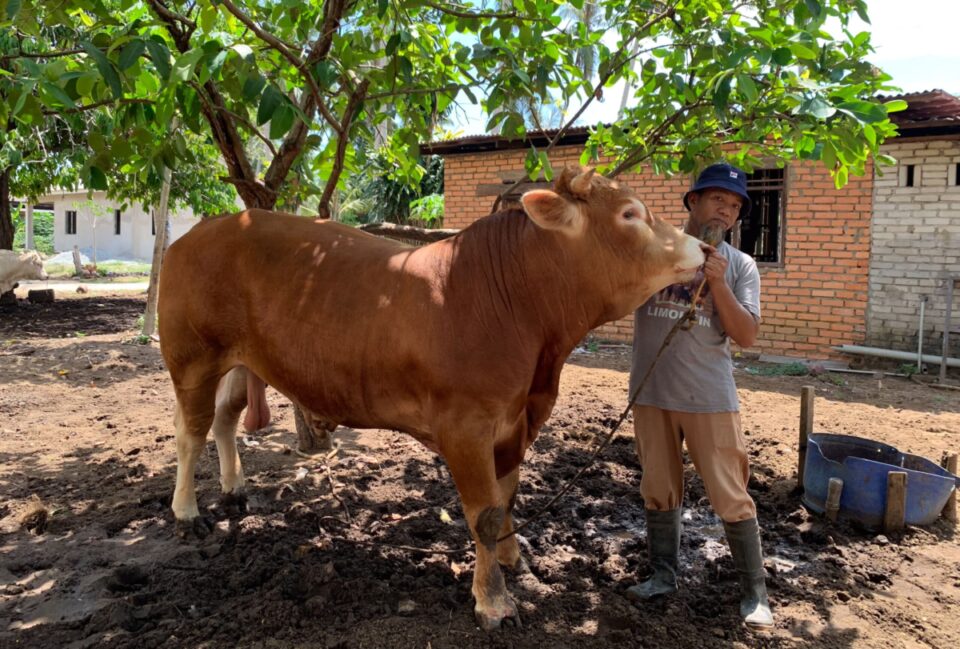BACHOK, June 11— Bigger is better for Aidiladha, with “lembu sado”, or gigantic cattle, being the preferred choice for sacrifice during Aidiladha — even when the price of one can easily reach five digits.
Breeder Noraimi Hasan, 53, better known as Paksu Mie, said lembu sado were not just being sought for their size, but also because the meat is more tender when cooked.
He said two out of nine lembu sado on his farm, each weighing more than 700kg and priced at almost RM11,000, have already been sold to buyers in Kota Bharu to be sacrificed on Aidiladha on June 17.
“It is not uncommon for buyers to come looking for lembu sado to be sacrificed on Aidiladha because the bigger the cattle, the more meat it will have, other than the fact that it is indeed tastier.
“Normally, a lembu sado is sold for RM1,300 to RM1,500 per part, depending on its size. Since it is gigantic, it needs at least eight men just to pull it down for slaughter,” he told Bernama when met at his house in Pantai Senok here.
Noraimi, who has been breeding gigantic cows for six years, said he only breeds Charolais and Limousin cattle as they fetch higher prices than local cattle.
“To ensure these cows continue bearing calves, we resort to artificial insemination. This procedure is done using seed imported from France and Ireland, with the help of the Veterinary Services Department,” he said.
Noraimi said he allocates around RM10 ringgit per day for each of his cattle to be given bran and grass in the morning and evening, with the quantity depending on their sizes.
“Among the constraints of rearing these cattle is high food costs, in addition to the risk of foot-and-mouth disease. To reduce the risk of this infection, I make sure each cattle is injected with the FMD vaccine every three or four months, which costs me around RM70,” he said.
A buyer, Mohd Izwan Seman, 31, said it has been an annual routine for him for the past three years to get a lembu sado to sacrifice for Aidiladha.
“Although the price is more expensive than local cattle, I am satisfied and I think it is worth it because the meat obtained is abundant and can be distributed to many more people in need,” he said.
— Bernama





